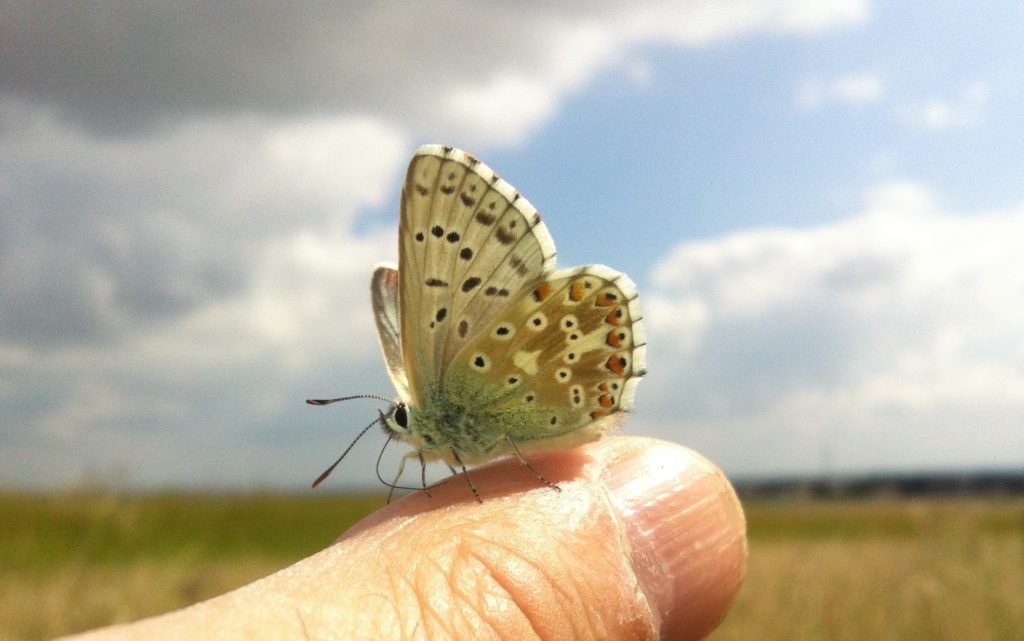LIFE UNION is fairness to other life!
This charitable initiative seeks to reach out to and mobilize as many people as possible who are compassionate to living beings in need, as well as respectful of others’ lives, and aware of their own responsibility to future generations. More and more people are realizing that the serious effects of exploitation and destruction on living things and natural habitats around the world require a complete reversal of current trends and that it is necessary to urgently initiate these changes for securing a livable future. For the present economic system, which exploits countless people, animals and plants for the purpose of material profits for a small minority and increasingly plunders the resources of the planet, drives the biosphere into an ecological and social catastrophe of unimaginable dimensions with the active help of irresponsible opinion leaders. The biggest problem of this economic system is its disregard of the principle of sustainable households with available resources. Our so-called “economy” does not even deserve that name because it does not respect this basic principle, which is expressed in its origin in ancient greek and should be its main objective. Instead, profit maximization has unfortunately established itself as the main driving force of modern economy and has become the insurmountable obstacle to a socially balanced society that is also fair to other forms of life. It tempts businesspeople to arbitrary price increases and, if the balance of power allows it, pushes them to cut costs in the procurement and production of assets and services. These savings are putting considerable pressure on small suppliers and producers, some of whom are passing them on to their employees and their families in order to keep their companies alive. Less and less smaller suppliers based in the region of their customers manage to survive an increasingly tough competition. The competitive pressure from large competitors, who score points thanks to better purchasing conditions and more opportunities for synergies which allow for promotions with lower prices and intensive customer service, is overpowering and shifts the markets in favor of large companies. Added to this is the growing pressure from globalization with competitive suppliers from countries with low tax rates and low social and environmental requirements. This growing external pressure is cascading along the trade and processing chains and fostering exploitation in each of its segments, beginning with the plundering of natural resources at the expense of humanity and its environment. The pursuit of maximized profits is the main cause of the most serious injustice among humans, namely the accelerated shifting of assets from bottom to top as a result of the flourishing turbo-capitalism, as well as the ongoing destruction of the livelihoods of more and more populations and species. Because of numerous interdependencies between them, many environmental impacts also have a negative impact on people. The almost unconditional dominance of economy threatens life on the planet all the more, as it excludes most ecological and social costs from its calculations. A steadily increasing number of poor and defenseless creatures of many species has to pay part of these costs promptly with their lives and health, while future generations will be overstrained with the rest of it, overwhelming them as huge debt burden increased by adding the costs of unaccrued interest rates.
In the sense of LIFE UNION, fairness means fair and responsible engagement for respecting the vital interests of unheard-of life forms of all kinds. It is an essential prerequisite for the effective protection of those people and other living beings who are threatened by destruction or overexploitation for the sole motive of profit for a few individuals, as well as for the preservation of livelihoods for subsequent generations, whose representation of interests is also our responsibility.
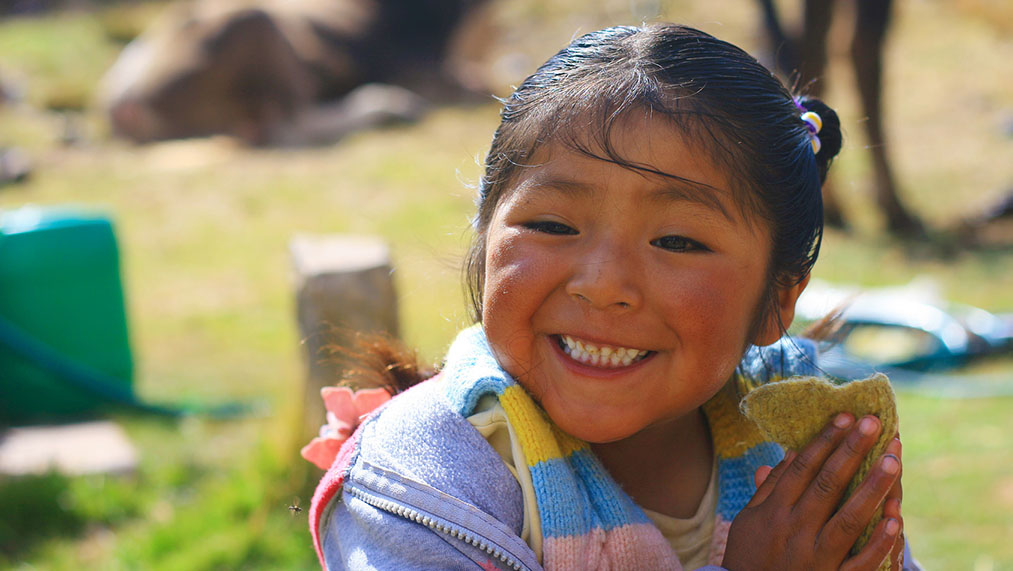
LIFE UNION is a coalition with other living beings
For many thousands of years humans have survived as opportunistic and successful predators and omnivores. This insight has inspired the steeply hierarchical representation of the food pyramid dominated by the human species, in accordance with its cultural self-image. In this sense, this representation reduces the realm of life to the usefulness of other living beings for humans. It shows how much their nutrition and thus the survival of mankind are entirely dependent on animals, plants and microorganisms and also indicates how the fate of more and more species is in the hands of humans. However, the food pyramid overlooks that humans ultimately serve as food sources for microorganisms, worms and insects as well as other invertebrates. Without burial or other events which remove the human corpses from the natural food circuits, quite some vertebrates belonging to the reptiles, fishes, birds, and even mammals feed on our remnants, according to the circumstances. The food pyramid also bypasses all parasitic diseases of humans, various bloodsuckers that make life sometimes difficult for us, and those tragic isolated incidents where people become the prey of large specimens of just a few surviving species of particularly dangerous crocodiles, sharks, bears or big cats. The food pyramid distorts reality, and its hierarchical structure, with the people at its head, leads them to reckless relations with all subordinate living beings therein. This, although the understanding and consideration of important ecological relationships are now indispensable for the future of humanity on earth. It is high time to replace the outdated and misleading food pyramid once and for all with a spherical model that roughly outlines all of the food circuits that affect human beings. This would not only allow us to better understand the natural dependencies of humans on other living things, but also to divine the unity of the biosphere that encompasses and unites all earthly lives. Nothing is more important than to recognize this unity of interconnected life forms, wich includes all living beings and their natural habitats. Because with the mental distanciation of humans from this natural unity through the introduction of the artificial and erroneous concept of the environment, they not only put at risk the biodiversity and the biosphere, but they negate their own nature and overlook their dependencies. In the separatist mistaken belief in their independence from the biosphere, people are blindly destroying their own livelihoods and endangering the future of humanity.
It is because of the limited nature of our habitats and vital resources on earth that global cooperation is needed to protect these, overcoming national, cultural and social barriers. However, without a novel and holistic solidarity that, in addition to this, breaks the boundaries of human nature with non-human nature, only an extremely impoverished core biosphere, with the functions already recognized as indispensable to humans, would be preserved temporarily at best. Because of their concatenation with unknown functions on unexplored levels of the extremely complex biosphere, the impairment of some of them, as well as the loss of parts of this unit, would most likely lead to disruptions that ultimately put at risk people too. Only the whole-hearted acknowledgment of their own nature by human beings and their spiritual reunion with non-human nature to its original entity can, thanks to a renewed view of all life as parts of a large whole, capture all its intrinsic values and thereby guarantee the sustainable survival of the natural biosphere. Without such a responsible union of people among themselves and with different forms of life, more exploitations, oppressions and wars will happen up to the destruction of biodiversity and the vast majority of natural habitats of our planet in this century!
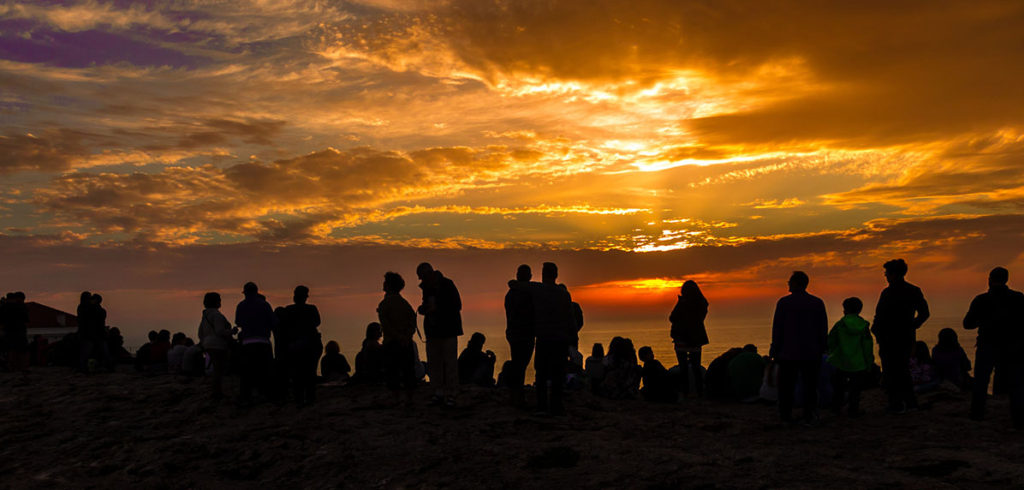
LIFE UNION is respect for other life
All living things deserve a minimum of respect from people for several reasons. They all exercise different ecological functions in their natural habitats. Although these functions of most creatures are yet unknown, we know how significant some functions of particular life forms are for other species, including humans. A prominent example is the widely appreciated function of pollination of flowers by honeybees, which is also essential for the development of many food crops. Because of this, and due to their production of delicious honey, many people attribute high utilitarian values to honeybees, accepting even the potential risks of painful bee stings, though in the hope of not being stung themselves. The high utility value of honeybees for humans generates broadest support for their protection within the population. But in addition to the utility values for humans derived from their reduction to flower pollinators and honey producers, honeybees, like all living things, have even higher, intrinsic values as well as the right to exist. So have the even more threatened species of wild bees, for whose fate unfortunately very few people are interested due to lack of known utility for humans. Those individuals who deny bees and other species intrinsic values, would logically either have to forget their personality by reducing themselves to their own values to others, essentially through their work, their consumption of various goods, and, where appropriate, through their reproduction, education of children and participation at charitable activities, or fail miserably while attempting to justify exclusive intrinsic values for people only. The natural rights of all living beings to existence are founded on their intrinsic values, which humans already have to respect on the basis of their own, highly developed mental abilities. Such a basic respect does not mean that all living beings should always and everywhere have the same rights as humans. Despite equal, intrinsic values of all forms of life, different living beings should be treated differently according to their respective differences. This also corresponds to the principle of equality of human ethics, which provides for interpersonal relationships to treat different people differently, regardless of their equal intrinsic values. In this sense, no one would treat his beloved friends or family members the same way as dangerous and not personally known criminals. Equally meaningless would be the equal treatment of humans, animals and plants, or expressed extremely pointedly, that of a particularly dedicated emergency doctor who saves many lives, with that of a tiger mosquito, that could infect several people with a deadly pathogen. Accordingly, the basic respect demanded by LIFE UNION for all other creatures does not provide them with complete protection against their use, disturbance and killing by humans. Especially not, if the life or health of the latter are endangered by other forms of life. However, such a basic respect should limit the human activities with negative consequences for other life to legitimate purposes, characterize all dealings with other living beings and provide even the most inconspicuous or annoying life forms as well as potentially dangerous living beings the needed protection against arbitrary aggressions, brute force, unnecessary torture and destruction because of the misconduct of reckless people.
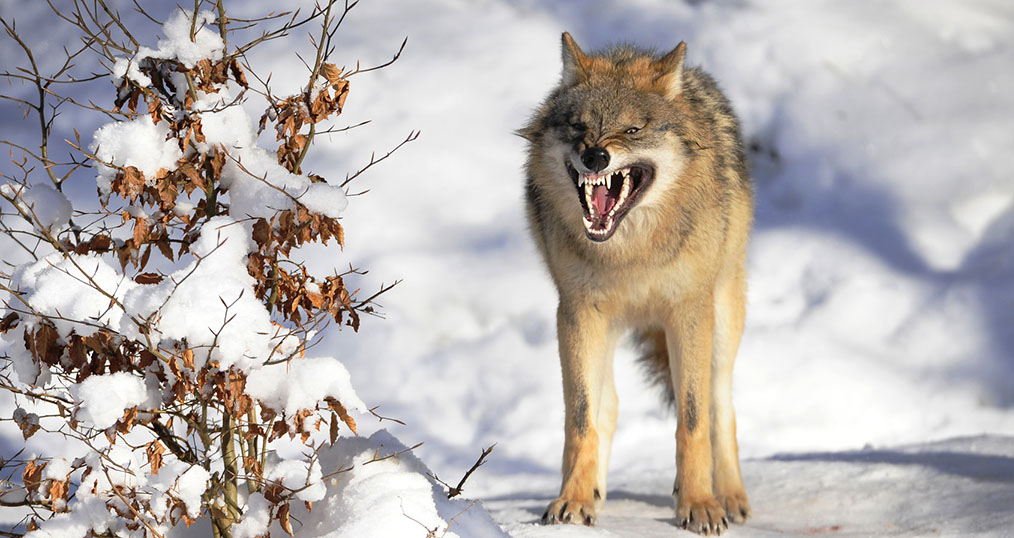
Thereby, many dramas on our planet could be successfully prevented. This basic respect is founded on principle esteem for life and on the admiration of its unimaginable diversity and complexity. Naturally, the respect of all natural habitats and their careful handling go hand in hand with it.
LIFE UNION is the praise of nature
More and more people are losing nature out of sight and out of mind. Especially in the artificial worlds of modern metropolitan areas, human contact with nature is rapidly eroding and rampant rural exodus is fueling this growing alienation in the cities, where nearly two-thirds of the world’s population are living already. The many distractions there make that natural processes, including vital human dependencies, are being progressively forgotten. With increasing “progress” even the interest in such elementary functions as nutrition and the preservation of other livelihoods gives way to mass enthusiasm for irrelevant topics and technical gadgets. To distract from major problems of society, incidentals are brought to the forefront and artificially hyped by opinion makers. Thereby, they obstruct the view of the people on the diversity of nature, the complexity and fragility of natural relationships, as well as on the dangers that threaten this inscrutable fabric.
The more nature is displaced from the life and consciousness of the people, the more frequently lip-service is paid to it by persons whose behavior and interests contradict their opportunistic expressions of support. Most of these self-proclaimed “friends of nature” would probably not be able to name ten species from the respective groups of mammals, birds, reptiles, trees, flowers and grasses from their personal natural environment, let alone discuss their appearance and particular properties. Most of them would not even be able to describe the natural look of a handful of their most important food crops. Yet, on suitable occasions, they boldly profess the protection of nature, presumably on the assumption, that such utterances may impress their respective counterparts.
Many people spend their free time in areas with at least some residual nature, albeit almost always for selfish reasons. Whether they are for the purpose of procuring herbs, mushrooms, firewood or other natural products, for their self-presentation while practicing various sports and recreational pursuits, recovering from everyday life, or just fueling healthy air and energy, these are all instrumentalizations of more or less well-preserved natural landscapes as appropriate backdrops. Rarely do such detours into the countryside serve exclusively to get to know and experience nature or unselfish absorption in it. Nature has been gradually exanimated and demystified by civilization before being analyzed and quantified by sciences. After having been robbed of her soul and reduced to its measurable aspects, nature has turned in the eyes of more and more people to something like a huge central warehouse for serving their consumption of natural products and nature-related experiences.
The ongoing depreciation of one’s own and extra-human nature triggers many people’s longings for the natural. These keep alive ongoing trends in nature consumption, for example through specialized trips or documentary films. Unfortunately, most nature films distort reality to satisfy their audience´s increasingly spoiled voyeurism in search of strong sensations by exposing it to a series of spectacular sequences of animal life pieced together, such as hunting scenes, fights among rivals, pairings, births and other snapshots that only make up a fraction of their lives in the wild. Frequent overemphasies of animal ferocity mixed with proofs of their natural strenghth clearly increase the audience rates. But at the same time they spread unfounded fears of these animals and often accelerate detachment from nature among viewers, who were attracted by nature before.
Other people, because of their desire for more closeness to nature, keep specimens of different species, including wild animals in captivity as well as diverse plants around them. Unfortunately, their living conditions are far too often unnatural, extremely reduced and thus unethical. The procurement of specimens from the wild poses additional problems. Neither such substitutes for nature, nor trips there or pieced nature films can stop the looting and destruction of nature or even slow them down.
Rather, they are accustoming people to labile remains or artificial replicas of nature and to mascots as replacements, letting them forget about the uncounted threatened animal and plants in their natural habitats, as well as the many millions of captive kept animals, that have been robbed of most of their natural behavior. Only directly felt and experienced nature can restore the former respect for “mother nature”. The renewed recognition of nature in ourselves and an emotional approach to nature around us are the best ways to critically examine our consumption and living habits and ensure their compatibility with nature, which in the meantime seems to be essential also for the survival of mankind on earth.
LIFE UNION is the search for justice
Despite countless calls from various opinion leaders for more justice that have been sounding for centuries, the injustices striking both people as well as other forms of life and those which will affect future generations are steadily increasing. From time immemorial, people have used their abilities and opportunities to continually acquire new territories, to exploit the local resources for personal gain without any consideration for the needs of local people and other creatures, and to subordinate the weaker. Technological and demographic developments have led to a steady increase in invasive raids and their potential for destruction, which has led to more and more inequalities of gigantic proportions. These are particularly clear in the distribution of income and wealth between and within countries. Thus, the difference between the average incomes of the richest and the poorest country has increased tenfold in the last hundred years and already moves in a ratio of about one hundred to one! Also the fact that the thirty richest people in the world together own as much as the poorer half of all people on earth together, cries out to heaven. As drastic as wealth and income disparities, inequalities in the consumption of land and resources, both between rich and poor countries, and between the strata of society living there, are exacerbated.
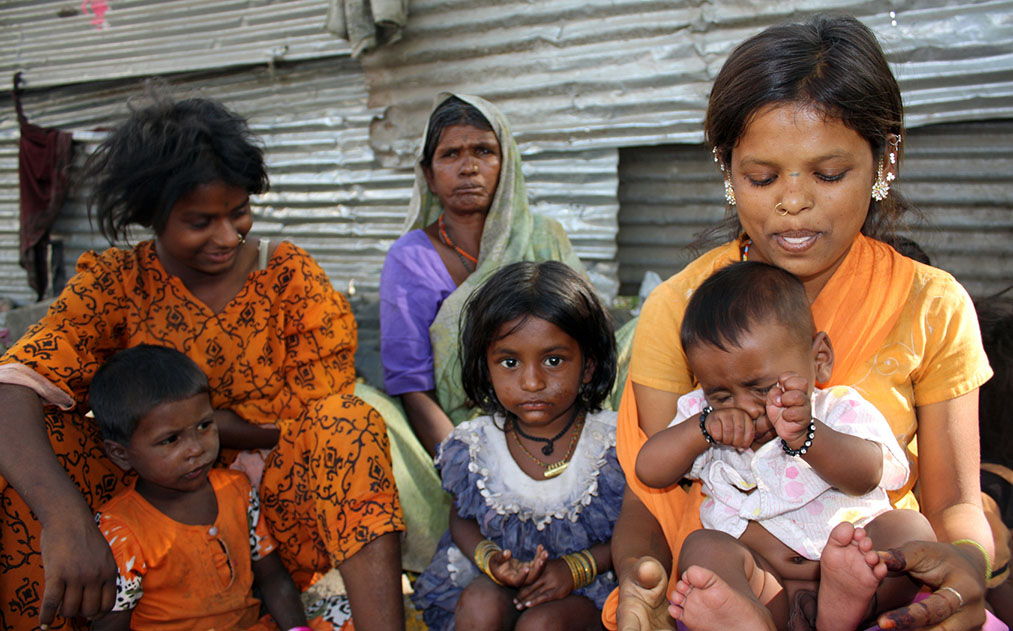
As if the injustices between rich industrial nations and developing countries were not bad enough anyway, rich countries export some of their toxic waste into the latter and shift lots of environmentally harmful productions of goods there. When citizens in allegedly enlightened industrial nations which officially acclaim human rights treat the vast majority of their fellow human beings so unfairly and deprive them of elementary rights, it is not surprising at all that they deny almost all rights to other living beings. All of these injustices cause grave problems that have either already destroyed or threaten the livelihoods of many living things in countless places, as well as numerous natural habitats.
It is high time that the hypocritical goals be replaced by acts that ensure the necessary justice among people as well as for future generations and other life forms. The right way to go there is completely different from the current collision course of our society, which has made the exploitation of the weaker to its leading principle. Global coexistence in the place of constant opposition on all levels is the call for a fundamental rethinking and a new beginning of our relationships with fellow human beings and with representatives of other species. A repositioning of humanity in the realm of life and harmonious relationships with other living beings are overdue. All of this is possible only when we descend from our self-made pedestal and recognize the intrinsic values and raisons d’être of all life forms and natural habitats. Living all together on this planet as partners shall replace the continously raging aggression against other people, societies, nations, species and living things once and for all. Our very survival can only build on values such as true justice and far-reaching solidarity and transparency. Such a cultural revolution is the key to a widely fair and therefore sustainable future of human beings in harmony with other life on earth.
